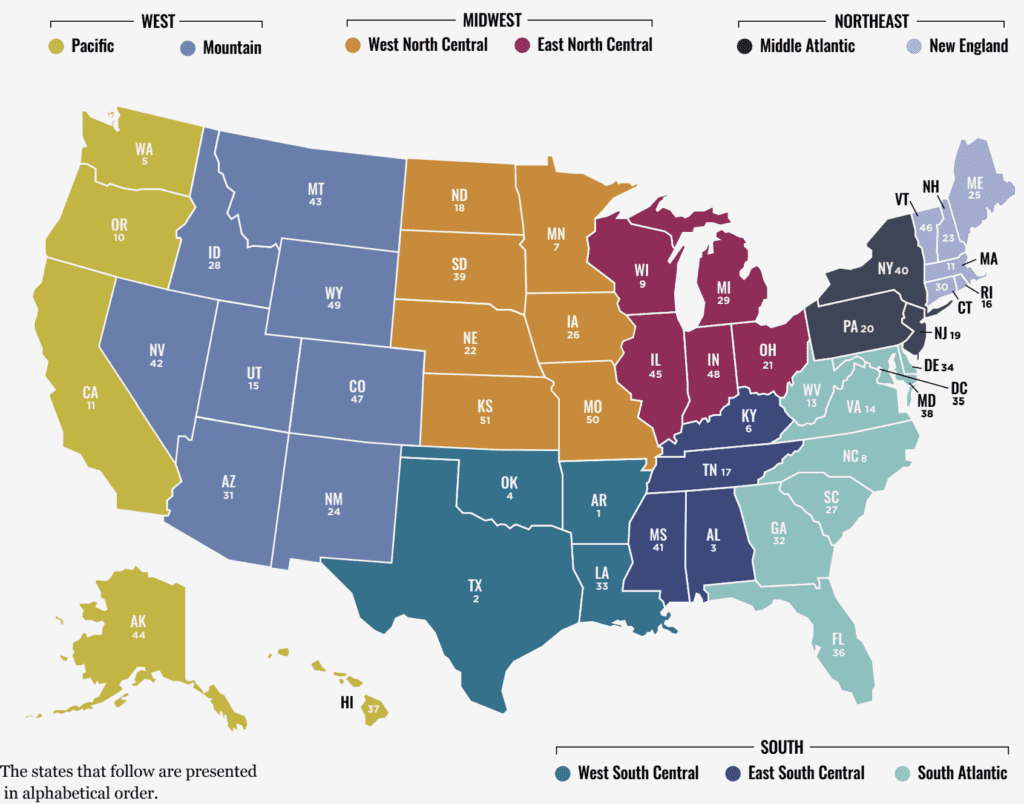Alaska’s Occupational Licensing Burden, Ranked
Alaska’s workforce is dwindling for a variety of reasons, and it will take a multi-pronged approach to encourage workers to rejoin the labor force in the state. One thing stopping some from working or transitioning to a different career is undue occupational licensing burdens. While rigorous processes to obtain licenses for some careers—such as doctors, psychotherapists, and surgeons—make sense, there are plenty of jobs that should not have such rigorous licensing requirements. While Alaska has a less restrictive licensing burden than some other states in the nation, it would behoove the state to remove or lessen the burden for as many jobs as possible.
According to a new U.S. index of occupational licensing burdens from the Archbridge Institute, Alaska ranks in the top ten least burdensome states at 44th, where 1st is the most burdensome state and 51st is the least burdensome. Compared to the other states in the Pacific Region (Hawaii, Washington, Oregon, and California), Alaska has the lightest licensing burden.

The index ranks each state and the District of Columbia on two measures: a barrier score and a license score. A barrier is defined as “tasks associated with an occupational title [that] are restricted by an occupational license,” while a license “is an explicit license for that occupational title.” For example, in some states, a hair shampooer must have a full cosmetology license; this is considered a barrier. In other states, there is a separate license specific to shampooing; this would go under the license score. In both cases, the state has placed a burden upon individuals who want to make money by shampooing hair.
Additionally, a licensing requirement is anything other than a registration fee—such as required degrees, exams, apprenticeships, on-the-job training, and continuing education requirements—that is mandatory. The index ranks states on 331 occupational titles that have “formal barriers to entry.”
The index counted 162 barriers to work in Alaska, explaining:
A barrier exists when the tasks associated with an occupational title are restricted by an occupational license to perform those tasks. The occupation itself may not have a specific license, but it is a crime to perform the associated tasks without meeting entry requirements.
While 162 barriers is a lot, it is fortunately less than both the regional and national averages, 181.6 and 179 total barriers respectively. In comparison, the state with the most barriers (ranked 1st overall in the index) is Arkansas, with 212. Kansas, ranked least burdensome in the nation, has 147 barriers to work in the state.
By the authors’ count, Alaska has at least 127 occupational licenses, which is much less than most other states in the nation. The average number of licenses for the region is 149.8, while the national average is 150. Texas has the most occupational licenses at 182, and Wyoming has the least, with only 119.

The index also highlighted unique licenses to each state—occupations in which only one or two states require a license. Alaska is the only state in the nation to require a license specifically for commercial industrial plumbers.
Overall, Alaska ranks well, but there’s more to worker freedom and individual opportunities than a ranking. There are plenty of ways to improve the labor force outlook in the state, which would not only lead to a better ranking but more importantly, ensure the state has more workers with jobs and a thriving economy.
It would benefit Alaska to recognize out-of-state licenses when the holders are in good standing or join interstate licensing compact agreements such as the Nurse Licensure Compact. It could also find ways to cut back on the number of barriers and licenses required to work in Alaska.
Alaska needs workers, and yet the state is keeping individuals from working through burdensome licensing requirements. Alaska can be a thriving state, with strong families and self-sufficient individuals. It is time to make that happen.